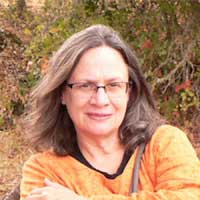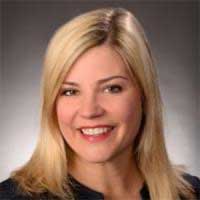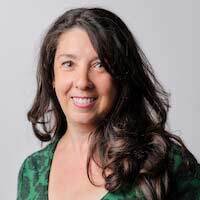Do Graduate Schools Accept Online Degrees? The Perspective of Admissions Teams
“Knowing that there is a process with checks and balances that requires providing evidence and competency to third parties that a program has the resources to successfully deliver an online program provides a sense of confidence.”
Kristen Eichhorn, PhD, Dean of Graduate Studies at State University of New York – Oswego
Completing a bachelor’s degree is an accomplishment, whether it is done in person or online. And preparing to apply for graduate school is another significant accomplishment. When a student chooses to further their education, they may wonder if it makes a difference if their online degree is accepted or not. They may wonder if completing an online degree will be considered differently than another student who may have completed a degree in person.
In actuality, graduate schools do accept online degrees. And in fact, with so much of the world transitioning to online learning for most of the 2020-21 school year, completing an online degree may actually be considered an advantage. For the most part, what matters from the perspective of graduate school admissions teams is whether or not the program the student completed was accredited.
Search Online Programs
There is more to what the admissions team will consider than simply whether the degree was completed online or not—a practice now referred to as holistic admissions. The Graduate School at the University of Washington calls holistic admissions “practices that promote an inclusive and rigorous graduate application review process that evaluates applicants through a variety of methods, rather than prioritizing GPA, standardized test scores such as GRE scores, or former school of attendance.”
Any degree program, whether offering online or traditional in-class instruction, must achieve a high standard of delivering an education program in order to be accredited. Many graduate schools also understand that many students who are furthering their education may not be traditional students. They may be switching careers, they may have been out of school for a while, or they may have significant work or volunteer experience that enhances their in-school learning. All of those things are considered in addition to whether or not the degree program was offered online or in person.
Meet the Expert: Rosemary Garagnani
 Rosemary Garagnani is the Assistant Dean for Enrollment Management and the Acting Director of Recruitment and Admissions for Oregon State University in Corvallis, Oregon. As the Assistant Dean for Enrollment Management and Services, Garagnani works with staff members who serve students throughout their graduate school careers, from applying for admission to degree certification and commencement. She worked with doctoral admissions programs at Washington University in St. Louis before beginning work at Oregon State in 2003. She has been with the Graduate School since 2008.
Rosemary Garagnani is the Assistant Dean for Enrollment Management and the Acting Director of Recruitment and Admissions for Oregon State University in Corvallis, Oregon. As the Assistant Dean for Enrollment Management and Services, Garagnani works with staff members who serve students throughout their graduate school careers, from applying for admission to degree certification and commencement. She worked with doctoral admissions programs at Washington University in St. Louis before beginning work at Oregon State in 2003. She has been with the Graduate School since 2008.
Garagnani’s interests include holistic admissions methods, the use of technology in enrollment management, and graduate policy development. She earned a bachelor’s degree in communications and journalism from Washington University in St. Louis and a master’s degree in computer and information management from Webster University. Garagnani has worked in the field of higher education for 40 years and directly in graduate admissions for 20 years.
Meet the Expert: Kristen Eichhorn, PhD
 Dr. Kristen Eichhorn has been Dean of Graduate Studies at State University of New York – Oswego since 2017. Eichhorn is a former Presidential Faculty Fellow and chair of communication studies who formerly completed an American Council on Education Fellowship at Cornell University. She was promoted to full professor in 2014 and has a distinguished record of teaching, research, and service, including serving as one of two senators to the SUNY-wide Faculty Senate.
Dr. Kristen Eichhorn has been Dean of Graduate Studies at State University of New York – Oswego since 2017. Eichhorn is a former Presidential Faculty Fellow and chair of communication studies who formerly completed an American Council on Education Fellowship at Cornell University. She was promoted to full professor in 2014 and has a distinguished record of teaching, research, and service, including serving as one of two senators to the SUNY-wide Faculty Senate.
As interim dean of extended learning, Dr. Eichhorn led SUNY Oswego’s efforts to enhance the continuing education efforts of nontraditional students, supervising instructional designers of online courses, veteran services, and undergraduate and graduate course offerings. She developed a program on campus to meet new state-mandated requirements for teaching certification and contributed to the college’s application for branch campus status for SUNY Oswego in Syracuse.
Dr. Eichhorn received her bachelor’s degree in communication studies and Spanish from Canisius College, a master’s in communication research from West Virginia University, and a doctorate in communication research from the University of Miami. The Division of Graduate Studies offers degree and certificate programs in all four of SUNY Oswego’s colleges and schools: the College of Liberal Arts and Sciences, the School of Business, the School of Education, and the School of Communication, Media and the Arts.
Are Online Degrees Respected?
In a nutshell, yes! Of course, online degrees are respected. But there is much more that goes into the decision to admit a student besides whether their degree was completed online or not. Dr. Eichhorn says the intention of the graduate admissions officer is to validate a student’s baccalaureate degree for graduate admissions: “To some extent, I think there are a lot of interesting questions that can be asked regarding the pandemic and how individual institutions are dealing with the influx of online courses,” Dr. Eichhorn says. “But I don’t know if things have changed drastically in terms of how we’re evaluating online degree programs.”
Accreditation comes in two forms: institutional accreditation and programmatic accreditation. SUNY is accredited by the Middle States Commission on Higher Education. Individual programs, such as the business, counseling, or education programs, have their own accrediting bodies.
“Often, both of these types have standards around expectations for online and distance education delivery,” explains Dr. Eichhorn. “Therefore, understanding the benefits of each type of accreditation can help us evaluate a college transcript. If the university is accredited and the program is accredited, that will give us an additional layer of confidence. When we get a transcript from a school that we’re not familiar with we go through the Council of Higher Education and browse for that school’s level of accreditations.”
Rosemary Garagnani, Assistant Dean for Enrollment Management and the Acting Director of Recruitment and Admissions for Oregon State University in Corvallis, Oregon, says OSU has no bias towards or against online degrees and concurs that a large part of what the graduate school is looking for is the accreditation of the school: “As long as the school is regionally accredited, we are going to accept that degree,” Garagnani says. “At the graduate level, what is being looked at is the coursework and whether the preparation appears to be there for the program the person’s applying to.”
Garagnani says she sees little if any change in how pre- or post-pandemic online degrees are viewed. “Certainly there’s been more leeway in general for students taking hybrid classes and so forth, but I don’t think that there was bias to begin with.” Garagnani says it’s been quite some time since there was any bias if there ever was any.
In 1989, the University of Phoenix became the first institution to launch a fully online school experience offering both bachelor’s and master’s degrees. In 1996, Jones International University became the first accredited web-based university. At the advent of online degrees, there may have been a perception that online degrees weren’t as rigorous as a traditional in-person degree, but that perception has disappeared. “I haven’t heard anything like that for quite some time,” notes Garagnani.
Garagnani adds that some online degree programs may be more robust than others, but she says there doesn’t seem to be any bias as there might have been 20 years ago. “A lot of adult learners are nontraditional learners and online degrees provide access,” Garagnani says. “There’s a lot more acceptance of online programs now.”
Holistic Graduate Admissions
Many graduate schools, including SUNY Oswego, are implementing holistic graduate admissions practices. It’s been clear to education experts for some time that focusing on external factors such as GPA and standardized test scores may not accurately predict success in graduate school.
Holistic review, also known as whole-file or comprehensive review, looks at a variety of factors, including personal attributes, when reviewing applications. The holistic review holds promise for achieving a diverse population of students with many different experiences and backgrounds who will also be successful in their chosen program.
At the time of its 2016 report entitled “Holistic Review in Graduate Admissions,” the Council of Graduate Schools (CGS) noted that there was no codified core set of practices that define holistic review. To create their report, the CGS studied existing literature and initiatives on holistic review and surveyed CGS’s 540 graduate institutions in the U.S. and Canada:
- 69 percent of the respondents felt that “measuring characteristics of applicants other than past academic performance and test scores” was a key feature of holistic review
- 62 percent chose “considering all the ways an applicant might contribute to a diverse educational environment.”
- 53 percent chose “equally weighing applicants’ experiences, attributes, and academic metrics”
Significant numbers of the respondents also chose “considering additional criteria” after an initial screening based on academic metrics, and 33 percent chose to consider “the demographic characteristics (race, gender, etc.) of an applicant.”
In other words, there is not one single indicator that should be used to exclude students. The undergraduate degree, the GRE score, GPA, and personal statements and essays should all be considered. In many schools across the country, the graduate school student population is very mixed. For a student who has been out of school for 20 years and started a career, the undergraduate GPA is not as predictive as some of the more recent things that they’ve accomplished. That makes things like letters of recommendation or personal essays so important for non-traditional students. “If we’re trying to serve a person who has been out of school for 20 years, the pieces of information that we’re looking for will look different than from someone who is just entering post-high school,” notes Dr. Eichhorn.
Garagnani says deeper factors like coursework are examined by the individual programs. “For instance, our computer science program has a long list of prerequisite coursework,” Garagnani says. “So they’re looking for specific coursework taken in advance.” OSU has about 90 graduate majors, and some have very specific prerequisite requirements while others do not.
Dr. Eichhorn says SUNY Oswego’s admissions officers place a little more emphasis on the students’ personal statements and letters of recommendation along with course descriptions “to make sure that they were actually learning what they needed to in the class.” Most graduate schools admit students programmatically, so the graduate admissions officers in each program would be responsible for evaluating the course content and relevant extracurricular experience.
“Each applicant goes through a deep departmental review process that is very different for each program,” explains Dr. Eichhorn. “We’re often looking at an overall GPA, but when we get the transcript we’re looking at specific courses. How did they do on undergraduate research methods? How did the school deliver this or that course? If they don’t have a solid statistics course, we may ask the student to take the GRE and we’ll be looking at those analytical scores. If there’s evidence of financial hardship with taking the GRE, we’ll ask them to submit papers that perhaps they’ve written in a particular course that can provide evidence towards their writing competence or towards their analytical skills.”
Each graduate admissions officer has a deep understanding of their own departmental criteria. Dr. Eichhorn says key to that is having deep conversations with departments about what the best pieces of evidence are that we can gather. “And even with one great piece, how can we supplement that with other pieces?” Dr. Eichhorn says they often approach students for in-depth individual conversations in which they talk with the student about what they have been doing and what pieces of evidence would more fully illustrate that, and then the graduate office helps them gather that, which is added to their application and sent to the department for review.
One option SUNY Oswego occasionally considered is conditional acceptance. If the student performs well in some of the hardest courses in the first semester, the school can offer full acceptance. If a course requires a prerequisite, the student may be able to take the prereq course prior to full admission. “We can still make really good, quality decisions in a short amount of time for our audience,” says Dr. Eichhorn, “but these strategies allow us to be able to customize what those pieces of evidence are that we look for to demonstrate competence.”
New Concerns Related to Online Degrees
One concern that Dr. Eichhorn sees is programs that abruptly had to transition to an online format during the pandemic. It is difficult to take an established in-person degree and suddenly deliver it fully online. Graduate admissions officers have no way of knowing how successfully the programs were able to do that.
One way to gauge proficiency is if an online program is registered with a regional accrediting body. A pending accreditation is a sure sign that a program was confident enough in its pivot to online delivery that it is seeking accreditation.
“Knowing that there is a process with checks and balances that requires providing evidence and competency to third parties that a program has the resources to successfully deliver an online program provides a sense of confidence,” says Dr. Eichhorn. “And even then, it’s not a one-and-done sort of thing. Accreditation requires an ongoing assessment of the quality of the educational experience that is reassuring.”
Has There Been An Increase in Online Degrees?
Dr. Eichhorn acknowledges that online degrees were trending even before the pandemic. But it’s too soon to see a notable uptick in applicants with online degrees. “There’s a pocket of an audience who clearly sees online education as more accessible,” Dr. Eichhorn says. Another change is international students are increasingly returning to state-side campuses following the relaxing of restrictions set in motion during the Trump presidential administration. “We’ll have to see how that plays out, and we’re also needing to be aware of Covid variants around the world,” says Eichhorn.
Garagnani too says there has been a slight increase, but not a huge one. “We may see more after a year or two goes by and the people who are undergraduate students now complete their degrees online,” Garagnani says.
If that increase does occur, Garagnani says it is something that graduate admissions officers would notice, but what would make more of an impact is if they started to see that students who completed online degrees were not successfully completing their graduate programs. “All data in higher ed is delayed,” explains Garagnani. “If anything would change our perception of online degrees it would be if, in two years we start accepting a lot of people with online bachelor’s degrees and then see in two to four years that they didn’t do well. But right now I don’t feel like there’s any evidence of that or any bias in that way.”
Understanding Student Success Factors
The pandemic has increased conversations about how students were affected over the 2020-21 school year and what accommodations were successful. “Our ultimate goal here is always to truly understand student success factors,” says Dr. Eichhorn. “In my personal opinion, I feel like in some ways we’ve created a space to engage the academic community and around thinking through what traditional practices were and how we might engage a larger audience by looking at things with a more flexible mindset about meeting students where they’re at in a greater way.”
Higher ed is evolving, stated Garagnani, and there certainly has been some impact from Covid with students and instructors trying new modalities. “I think that online access will grow,” she says. “We’ve certainly seen more applicants to our online programs.”
It’s clear the current environment is stretching the boundaries a little bit. This means the pieces of evidence admissions officers look for can look a little different, and students who have non-traditional experiences have a greater chance of being both accepted and successful into their program of choice.
